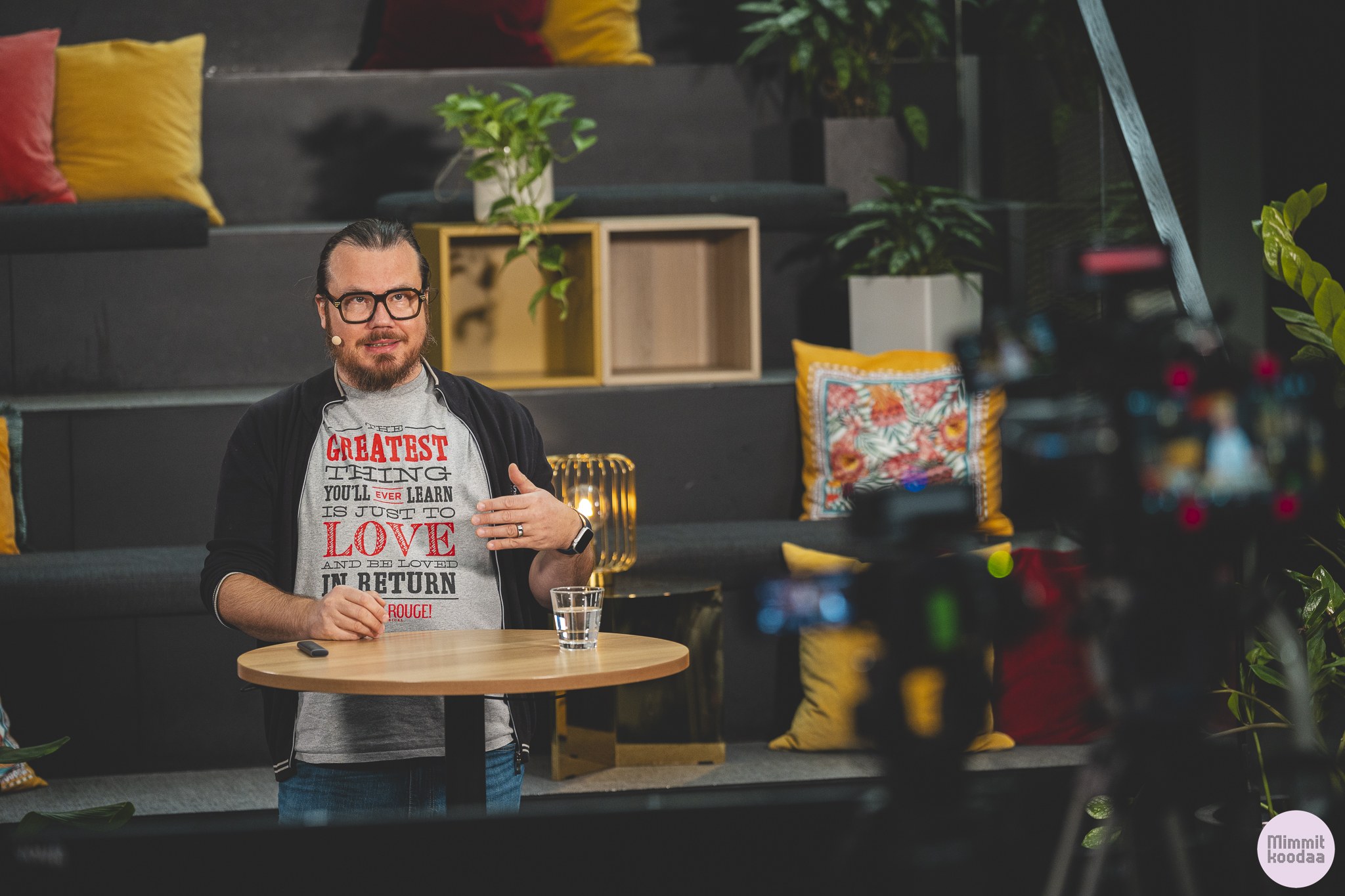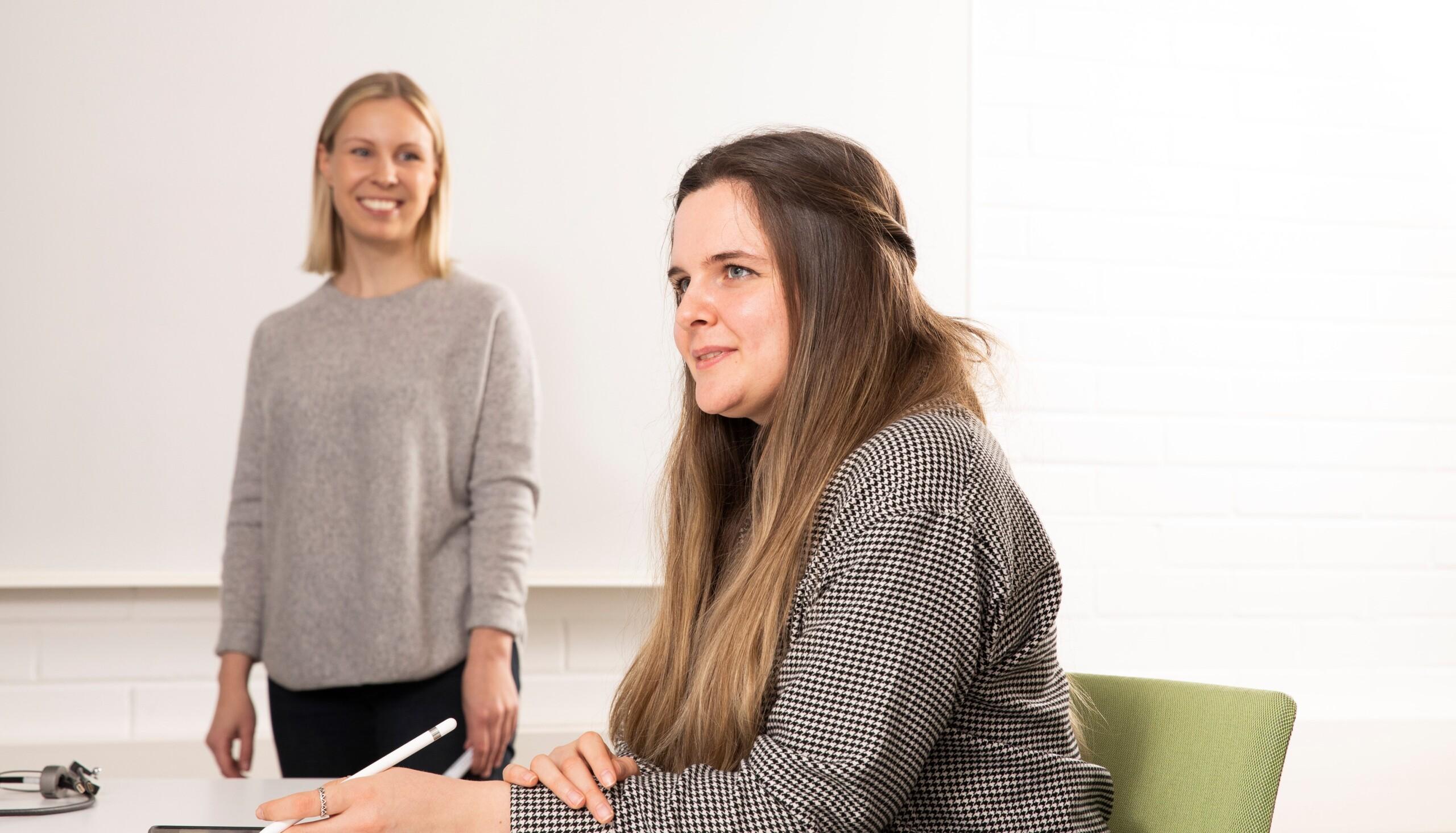Philosopher, non-fiction author, business coach, musician, and serial entrepreneur Lauri Järvilehto, who works as a Professor of Practice at Aalto University, acted as FITech Network University’s guest speaker in Mimmit Koodaa’s virtual event in November, 2024. The topics of Järvilehto’s speech were continuous learning and artificial intelligence (AI). The speech discussed ongoing changes in the working life, how continous learning can help to adapt to these changes, and how artificial intelligence, in turn, can help with continuous learning.
“I’m kind of a recovering AI sceptic. For a long time, I considered these artificial intelligence and thinking machine stuff to be pure nonsense and quackery, but these new solutions have actually shown that they can accomplish tasks that seemed technically quite challenging, if not impossible, to achieve just a few years ago.” –Lauri Järvilehto
According to Järvilehto, for the past ten years, it has been clear that the forms and developments in automation and information technology challenge the way work is done. Järvilehto mentions how a study by two Oxford University professors in 2013 shocked the world by suggesting that in the near future, approximately 47% of current occupations would disappear due to automation. However, in 2016, Boston University professor James Bessen criticised the study, arguing with data showing that automation had only replaced one occupation in the United States between years 1950 and 2011: the elevator operator.
Automation evolves work practices
Järvilehto describes that automation technology does not eliminate professions but rather transforms work practices. According to Järvilehto, using a fax machine was a necessary skill in many fields during the 1980s and 1990s. Nowadays, due to technological advancements, the need to use various instant messaging applications at work has replaced the fax machine in many professions.
Recent analyses support the Oxford University professors’ reseach, indicating that approximately half of routine tasks can be automated shortly. According to Järvilehto, approximately five years ago experts felt that automation would primarily impact manual labor, while knowledge workers, such as those in management, teaching, coding, writing, and pattern creation would remain safe for a long time. However, the situation has reversed; manual laborers continue performing their tasks, while knowledge workers have realised that new artificial intelligence solutions can handle a significant portion of their daily work duties. Järvilehto reminds, however, that automation does not eliminate the need for workers, but it changes their skill requirements.
“The situation is so tricky that I can’t really say what should be studied next to thrive in this change. The most important thing is that we learn these meta-skills of learning, continuous learning, and integrate that smoothly into our everyday lives.”
Lifewide learning fits into the small gaps of the everyday life
According to Järvilehto, Aalto University has developed a new concept called “lifewide learning” in place of the traditional definition of continuous learning. The new perspective aims to incorporate content that enhances learning capital into the small gaps of everyday life, such as coffee breaks, waiting for the bus, and short walks in the forest. The goal of lifewide learning is to make learning seamless even amidst the so-called “rush years” and busy daily routines, so that learning would take minutes instead of months. Based on the new perspective, learning can be seen as an opportunity to develop work and the working life so that it guides individuals closer to their own interests and strengths.
Järvilehto encourages learners to focus on two main things: what they are genuinely interested in and what they want to learn and how to quickly identify useful skills from their field. Järvilehto emphasises that working on these topics even for a few minutes at a time can help achieve results with continuous learning and a small effort.
Lauri Järvilehto is a Professor of Practice at Aalto University, a philosopher, non-fiction author, business coach, musician, and serial entrepreneur. He is interested in thinking, well-being, creativity, learning, and the future of work. He has written several best-selling books and lectured on the theories and tools of thinking at universities, startup events, and scientific conferences around the world. Read more about Järvilehto’s thoughts on his website.
This text is a summary of the speech Järvilehto gave as FITech’s guest speaker on 1 November, 2024 at Mimmit Koodaa’s virtual event. Watch the recording of the speech on YouTube (in Finnish).
Picture: Mikke Pöyhönen
Study tips
The free Starting up course offered by Aalto University provides advice on starting your own startup business. Interviews with successes and achievers in the field offer valuable information on developing a startup. Read more about the Starting up course on FITech’s website and start studying right away!
Järvilehto is one of the guest speakers in the FITech 101: Jatkuvan oppimisen taidot course (in Finnish) that provides basic skills for continuous learning and practical tips and tools for developing your competence. The course is suitable for everyone interested in continuous learning and the opportunities it offers, who wish to update and improve their learning skills.


